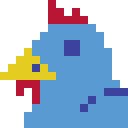The Distraction.Engineer
(Beginning to) remove myself from Twitter
For professional reasons I can’t quit Twitter, but lately I’ve been feeling it’s unhealthy for me to keep using it. Rather, it’s unhealthy to keep using as I have been.
Out of frustration I temporality switched my personal Twitter account to private. In the short term that meant I opted out of the algorithmic public discourse, but nearly 12k followers would still see my words.
Since making the the switch, I caught myself numerous times scrolling, getting triggered and nearly sucked into multiple conversations I couldn’t meaningfully affect. It’s not that nobody would see me, but before going private, only a subset of a subset of the 12k that follow me, and maybe the person I’m replying to would see it. If I was lucky, maybe the algorithm would tell others. But after going private, it would only ever be that subset of a subset. Going private also disables retweeting, making it nigh impossible for my words go viral. I did notice that when I aware of the fruitless of replying, it made it easier to stop myself from getting sucked in.
This isn’t the first experiment I’ve done like this. Some of my PC’s have the twitter.com domain name blocked, to keep me honest. Far more often than I’d like to admit, I found myself firing up a new browser tab and beginning to type it (YouTube too, but that’s a separate issue).
My recently adopted pseudonym—the distraction engineer—has a few different meanings. One one side it cheekily suggests that games are distractions, and that other forms of entertainment like the events and websites I run are distractions. In essence, I create distractions. Low key though, it’s a reflection of my own struggle. I build and create things to distract others, while also struggling with distractions myself.
It’s an interesting dichotomy being the problem and having the problem.
Not to mince words, I’ve struggled with ADHD all my life, and it took me decades to appreciate that. It’s not something I should be embarrassed about—I am—despite ADHD being one of the most common and most treatable conditions out there. For years I remember feeling a shitty sense of superiority “managing” my ADHD without medication, but then proceeded to pull numerous late-nighters and all-nighters, all to keep up with expectations as someone in my position. And whenever I hit an executive function dead end, I took it as a sign to quit and move on. This wasn’t a terrible way to live, but I’m not without blame for getting burned out time and time again.
I did my best without help, but I’m in my 40’s now and my body can’t handle all-nighters, not anymore. Earlier this year I spoke with my doctor and started treatment. It hasn’t been entirely without incident, but without a doubt I’m doing so much better today than I was. If nothing else I understand my condition better. It’s still a constant battle to find a balance where I’m not overworking or overcommitting myself—the so called “work-life balance”—but after decades of trying I feel I might finally be on the right track.
Back to Twitter.
After 15 years on the platform, I’m not convinced “Twitter in moderation” is something I can realistically do. It has been an indispensible tool for events (running them or attending them), but daily browsing Twitter is a trap for the ADHD brain. I get frustrated when I don’t have anything to show for my time spent on something. For my mental health, I need to cut back my browsing and my socializing on the platform.
That’s not to say I’m done with micro-blogging, but I do need to detach myself from the daily feedback loop. I’m also curious to explore the technology behind it, both on platform (Twitter) and off.
 Mike Kasprzak
Mike Kasprzak